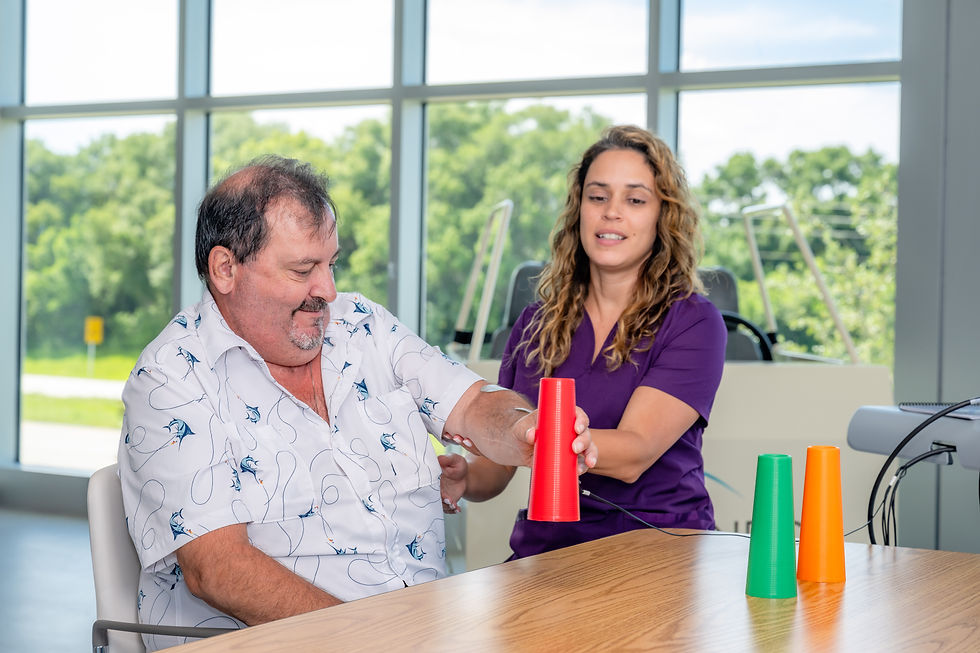Aphasia - What It Is and How To Communicate With Those That Have It.
- Shreveport Rehabilitation Hospital

- Apr 15, 2022
- 2 min read
Our staff and providers at Shreveport Rehabilitation Hospital have cared for patients recovering from stroke, brain injury and the acquired communication disorder, aphasia. The recent news of Bruce Willis' diagnosis of aphasia has been on the minds of many including our leadership and staff. As an inpatient rehabilitation hospital that serves patients with various conditions including aphasia, we wanted to share some resources, especially highlighting the integral role our Speech Language Pathologists (SLP) play in the healing process.
What is Aphasia?
Aphasia is an acquired communication disorder - meaning something that happens during normal life, not present from birth - that impairs a person's ability to process language, but does not affect intelligence. It can be caused by a brain injury such as stroke or head trauma or, the neurological form known as primary progressive aphasia (PPA), which comes on slowly and progresses over time. Aphasia hinders the ability to speak and understand others and is often a sudden occurrence due to the injury sustained. If mild, you may not even be able to tell that the person is challenged to form words, but in more severe cases, it will be immediately apparent that they are having trouble finding words, reading and/or comprehending. Some with aphasia may have difficulty producing messages - saying the correct word, remembering how to say what they intend to say, or writing may be impaired. Aphasia can affect speaking, understanding, writing, and reading.

How Do You Communicate With Someone Who Has Aphasia?
While aphasia can be isolating, with the encouragement and proper care to help those diagnosed with it communicate and remain part of the conversation, they will feel supported. Help friends and family understand that the old ways of communicating may not work, and they’ll need to adjust to keep the person part of the conversation. This may mean
providing them a pen and paper to write out what they want to communicate
reducing background noise
taking it slow during the course of the conversation
Inpatient Rehabilitation Supports those with Aphasia
Our SLPs are an incredibly important piece of the puzzle at Shreveport Rehabilitation Hospital, especially when it comes to cases that affect speech, swallowing, and communication. Our only job is to get you better and get you back to doing the things you need and love to do with the family and friends you care for most. Your only job while with us at our inpatient rehabilitation hospital is to do your best and help us help you make the most of your time.
For more on our Speech Language Pathology services as part of our inpatient rehabilitation facilities visit https://www.shreveport-rehabhospital.com/meet-our-team-shreveport-rehab.
For more on Aphasia - https://www.aphasia.org
Shreveport Rehabilitation Hospital
318.232.8880 | https://www.shreveport-rehabhospital.com











